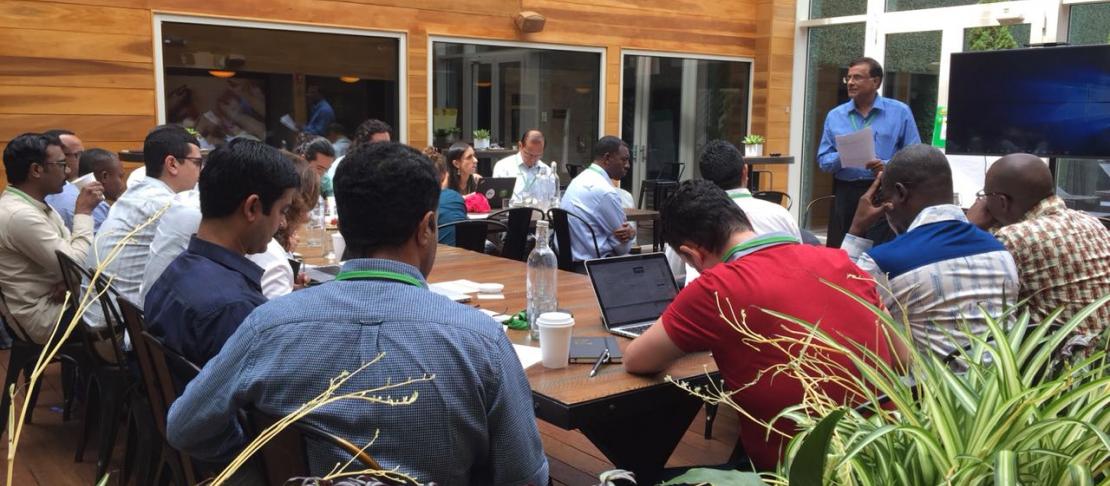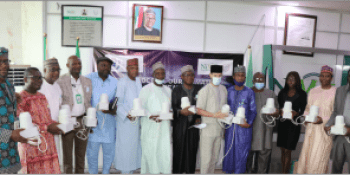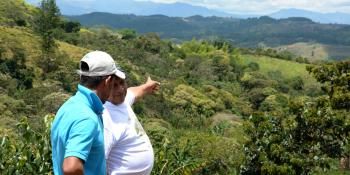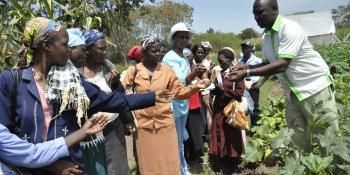South-South collaboration to accelerate climate risk management

At a recent workshop held in New York, a platform was created to converge opinions from the Global South on ways to co-develop climate risk management tools.
The CGIAR Research Program on Climate Change, Agriculture and Food Security (CCAFS) organized a workshop titled ‘South:South Collaboration on Climate Risk Management’ in July to mobilize stakeholders from different regions to facilitate the diffusion of learning and advances in climate risk management from one region to another. In the two-day workshop held in New York, participants from global CGIAR centers shared their expertise in the fields of weather risk insurance, climate risk reduction and adaptation, and related tools to enable robust networks for knowledge transfer with respect to climate risk management.
Mobilizing regional inputs
The opening of the workshop by the CCAFS South Asia program leader was followed by a framing session, during which an overview of the workshop along with the scope of crop insurance was provided to the participants. To set the necessary context, the workshop began with a discussion on opportunities for South-South collaboration for climate risk management. The importance of global learning platforms that allow regional technology and knowledge transfers across CCAFS and CGIAR partners was highlighted.
This was followed by presentations on the status of crop insurance and the challenges in formulation, implementation and scaling out of agriculture insurance programs in different regions of the world. Despite gradual penetration and acceptance of agriculture insurance across regions, there is a need for enriched high-quality scientific products with improved coverage of risks for poor agriculture households.
A panel discussion was held to share the challenges for designing insurance schemes and products, which included capacity and capital. A plenary discussion took place afterwards, to understand other aspects that impede greater penetration of insurance as an effective strategy for risk management in the regions.
The workshop specifically served as a practicum for a scientific tool for crop insurance: the Crop Loss Assessment Monitor (CAM). The beta version of the CAM tool was introduced during the workshop to increase capacity in the regions to understand and assess its effectiveness, and identify opportunities to improve and co-develop it via regional cooperation. The participants critically examined how they can integrate such scientific tools to complement the management of climate-related risks in their regions.
Formulating strategies
The second day started with future strategies for South-South collaboration on crop insurance, potential co-development of scientific tools on risk mitigation, and the preparation of preliminary regional proposals around this collaboration.
This was followed by focused discussions on adaptation domains for climate risk management, aimed at enhancing understanding of various approaches and tools for effective technology transfer. Participants gave examples of tools and methods to support more effective research prioritization and development of programs, as well as to facilitate adoption by farmers. The workshop specifically served as a consultation for the climate analogue tool My Future Farm. The initial flow chart of the tool with a case study was presented to demonstrate the potential of the tool in technology targeting and capacity building of stakeholders.
Future plan of action
The workshop presented a unique opportunity to bring together participants from the Global South to discuss ways to better integrate scientific tools, lessons learned and good practices for reducing climate risks in agriculture. There was a resounding call for the development of the CAM tool in a more robust and comprehensive package, and a decision was made to kick-start the development of the CAM tool in two phases. Phase 1 activities will focus on identifying user requirements, regional specificities and improving the methods, while Phase 2 activities will focus on using advanced satellite data with linkage to existing real-time monitoring systems.
Read more:
- Workshop report: South: South Collaboration to Accelerate Climate Risk Management
- Report: Crop Loss Assessment Monitor
Mansi Nagpal is a Consultant Research Associate at CCAFS South Asia.



